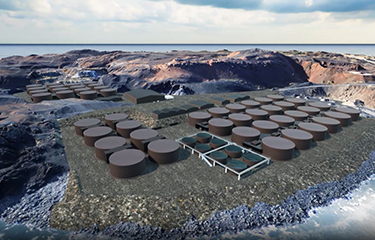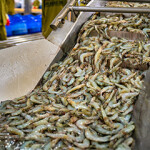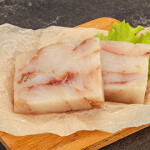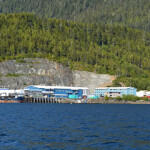Laxey raises EUR 42 million for land-based salmon farm in Iceland

Laxey, formerly named Icelandic Land Farmed Salmon, has raised EUR 42 million (USD 45 million) in the first phase of its equity fundraising effort.
The company has already commenced construction on a 32,000-metric-ton land-based flowthrough Atlantic salmon farm in a former quarry on Heimaey, the largest of the Westman Islands, situated off the south coast of Iceland. The project includes a hatchery to be completed by the end of 2023 and grow-out facility, with production at the site commencing in 2024.
Laxey, which used Arctic Securities as its global coordinator and bookrunner and Mar Advisors as its financial advisor, did not disclose the investors it attracted in the fundraising round, besides announcing a local family involved in Iceland’s seafood industry – which recently sold its seafood holding – is an anchor investor.
Laxey said on 15 September it would continue to seek new stakeholders and additional capital in both Nordic and international capital markets as it advances its project.
Laxey, which has upped its planned annual production from an original goal of 10,000 MT to 27,000 MT by 2031, is led by its chairman, Lárus Sigurður Ásgeirsson, a former engineer for Marel, Sjóvá, and Icelandic Group; Daði Pálsson, a board member and founder of Leo Seafood; and Hallgrímur Steinsson, who previously served as the manager of the Langa fish-processing facility in the Westman Islands.
“We are extremely proud of reaching this milestone, and appreciative of the trust our investors have shown by participating in this unique project,” Ásgeirsson said. “Our team has been preparing this project since 2019 and we see great opportunities in the production and sale of Icelandic land-farmed salmon from the Westman islands. The location offers ideal conditions for producing high-quality fish products through superior know-how and a strong talent pool, which is a key factor in this sector.”
Ásgeirsson said the farm will be construction in six sections, with the first operational by mid-2024 and sales commencing in late 2025.
“The first section will be cash-flow positive as a stand-alone operation, with each additional section increasing efficiency of production, with lower investment cost and operational cost per kilogram produced,” he said. “Conditions for land-based salmon farming are very good in the Westman Islands. A stronghold of the Icelandic fishing industry, the islands have a strong tradition for, and deep knowledge of, protein production and seafood export. The infrastructure is strong, the community is cohesive, and access to talent and know-how in food production is very good. In addition, emphasis will be placed on shipping fish to market by sea, lowering the carbon footprint of the salmon.”
Additionally, 100 percent of Laxey’s energy use will be sourced from renewable sources, and biological waste from the facility will be collected for reuse. The flowthrough system being installed at the farm by AKVA Group will rely on a split of 65 percent sea water, which will be reused, and 35 percent fresh water "pumped from boreholes in the area at optimal water temperatures for salmon farming," according to Ásgeirsson.
Laxey Project Manager Kristin Hartmannsdóttir told SeafoodSource in October 2022 the company’s salmon will be a premium offering.
“Our belief is that by maximizing quality, new standards will be created that will ensure good long-term business with loyal and satisfied customers,” Hartmannsdóttir said.
Ásgeirsson said that plan remains viable.
“Demand for farmed salmon is growing steadily worldwide, due to increased emphasis on healthy lifestyles, an expanding middle class worldwide, and increased emphasis on sustainability in food production,” he said. “Great emphasis has been placed on careful preparation of the project, and a thorough assessment of the environmental impact.”
Photo courtesy of Laxey






Share